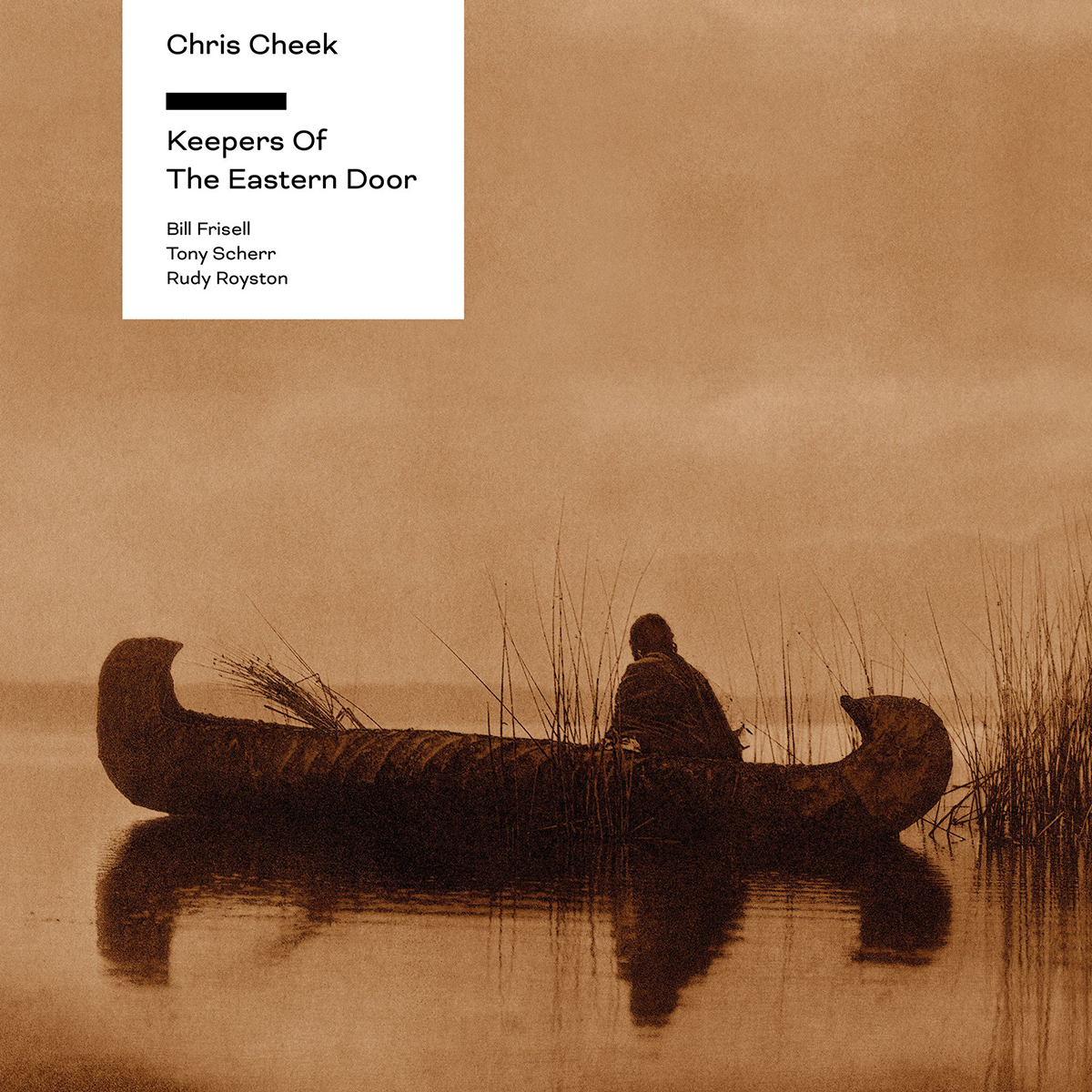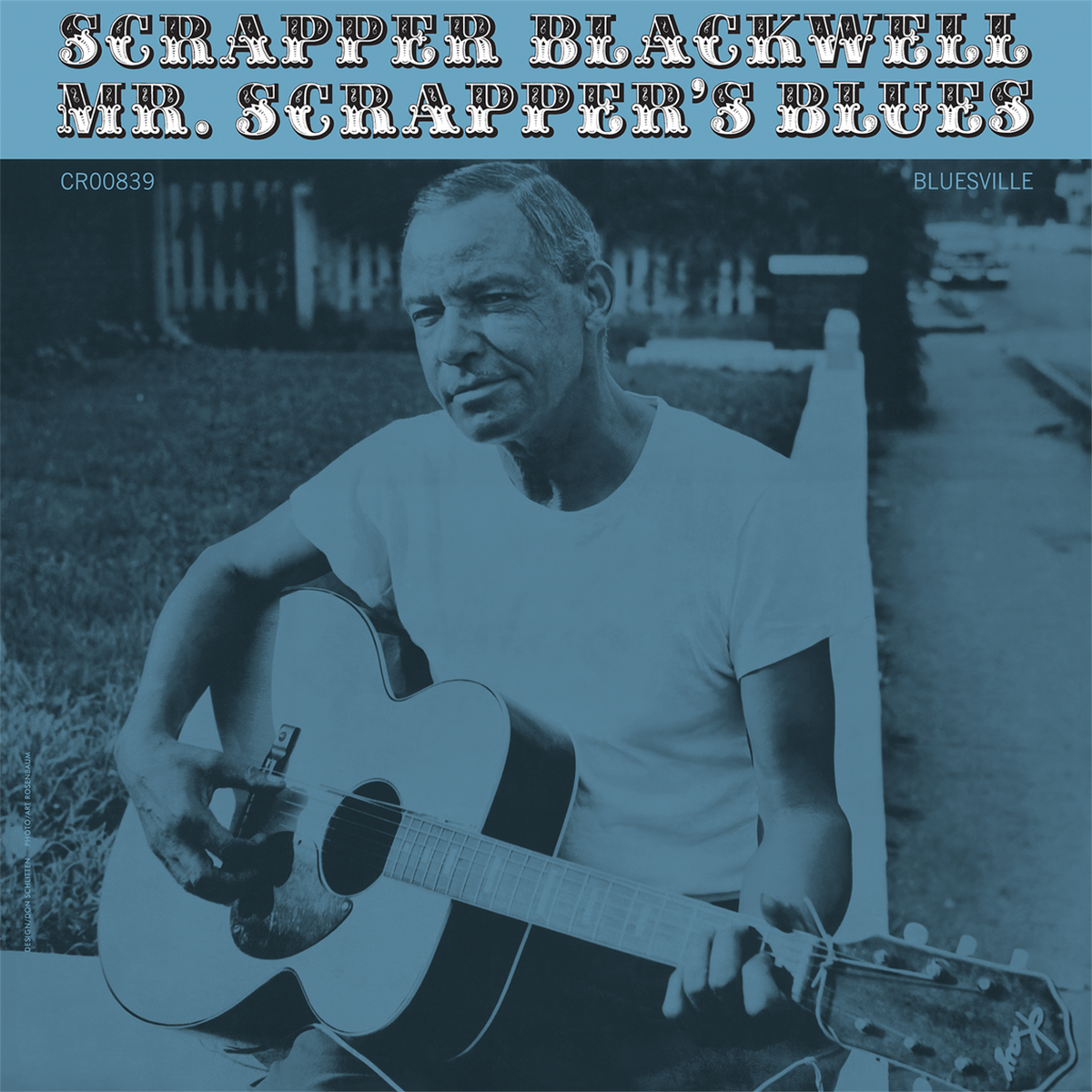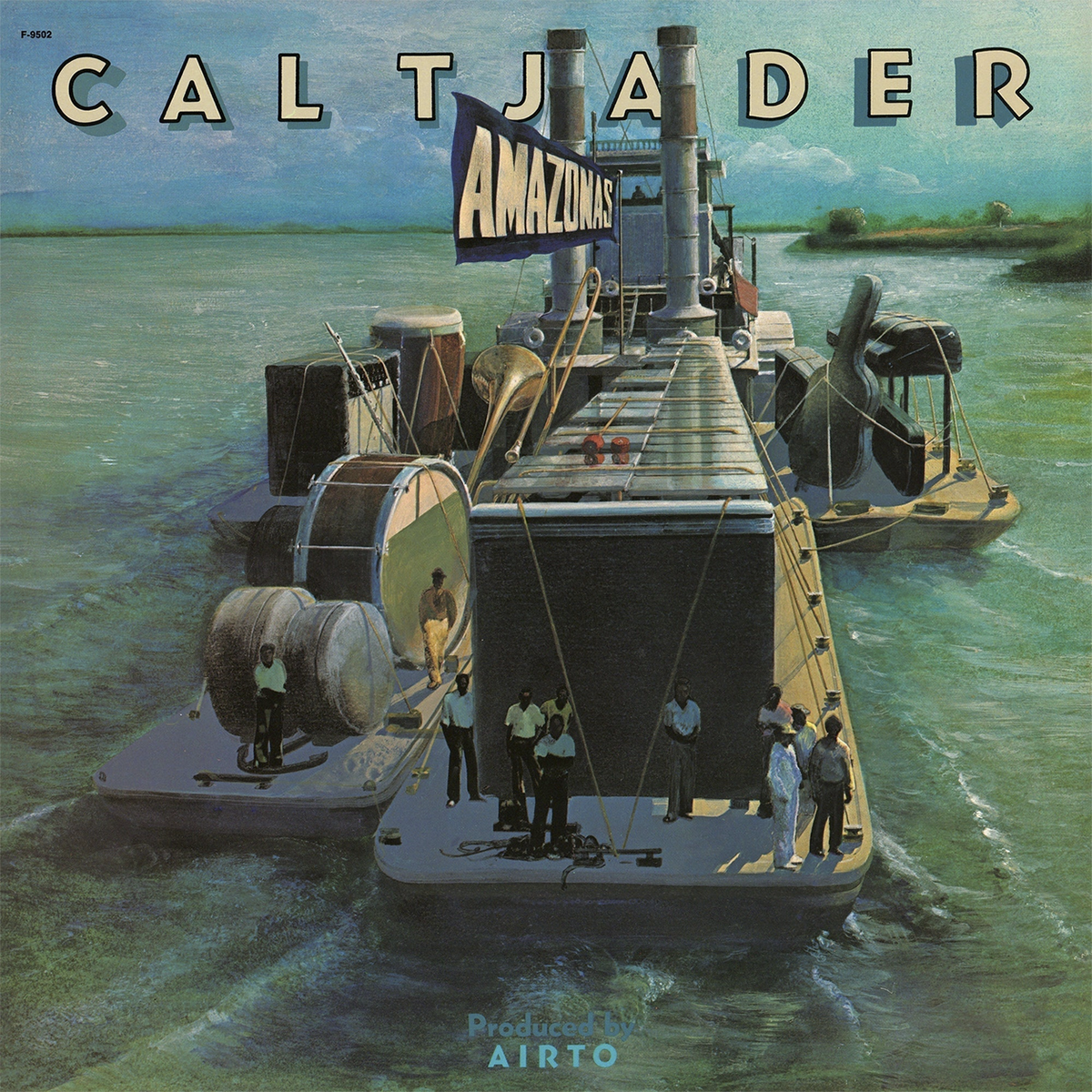 Keepers of the Eastern Door
Keepers of the Eastern DoorThere is definitely a bit of a western expansion, wide open spaces, dare I say, almost a cowboy vibe to Keepers of the Eastern Door. The album’s title references how, during the time of early American settlement and expansion, the Mohawk tribe of Native Indians was considered as “Keepers of the Eastern Door” for their role as guardians against invasion from encroaching colonizers.” While the music doesn’t particularly reference any specific time in said history, there is that unmistakable sense of being taken on a long musical journey on that wide open range. Destination, a wee bit unknown.
The performers on this album are all of exceptional caliber, consisting of Chris Cheek on Tenor and Soprano Saxophones, Bill Frisell on Electric and Acoustic Guitars, Tony Scherr on bass, and Rudy Royston on Drums. They sound as if they have been playing together forever, so balanced and well-knit are the results. They don’t really get into what I might consider free-form or experimental jazz per se, all the tracks maintain a solid melodic core while giving everyone just enough leash to go run and play for a bit before coming back home. This makes for very good music to just sit down and soak in.
The tracks “Smoke Rings,” “On a Clear Day,” and even their take on the Beatles’ “From Me to You” definitely are strong with that out-there-on-the-wide-open-plains feel to them. The interplay between all the musicians is inspiring, creating both a melody and a soundscape that is so appealing and satisfying to listen to.
“Lost Is My Quiet” and “Go On, Dear” are slower musical trips with a sense of wandering between the players. Definitely a “it’s-more-about-the-journey” sort of vibe to these tracks, where each player gets a chance to breathe a bit. Cheek’s sax is firmly planted dead center with a silky-smooth delivery. No sense of harshness at all to his instrument, sounding very warm and inviting.
I’ve been an admirer of Bill Frisell for quite some time, and hearing his distinctive guitar tone and deft playing off to the left is a welcome treat, and it’s beautifully captured on this LP. His work is almost like a fingerprint, so unique and distinctive it is. Tony Scherr’s bass lines are low, punchy, and so melodic that they are a joy to follow. Rudy Royston’s drum and cymbal work is sublime, perfectly punctuating the track and framing the other players tastefully.
The overall sound quality of this LP is superb. It has a big, warm presentation to the sound while still keeping the players clearly defined and with a decent sense of depth for a vinyl LP. According to the liner notes, the recording sessions were recorded live at Power Station Studios, NYC, and captured on two-track, 1/2-inch analog tape at 30 ips. The recording was treated to a full analog mastering by Bernie Grundman, with this particular LP that I have being a 1-Step, limited edition pressing, the process reducing some of the inherent generational loss from standard LP production.
Technically, the LP is flawless, with an almost dead quiet level of surface noise and no clicks or pops to mar the listening experience. A truly lovely listen!
Secrets Sponsor
 Mr. Scrapper’s Blues
Mr. Scrapper’s BluesFrancis “Scrapper” Blackwell is another example of an early foundational blues artist who saw great success in the late 20s and early 30s, only to have circumstances drive him into obscurity until this recording came about in the early 60s. Originally partnering with pianist and singer Leroy Carr, they penned the classic blues chestnut “Blues Before Sunrise,” which would be covered by so many other blues and blues/rock artists that followed.
Coaxed out of self-imposed retirement in the late 50s, Mr. Scrapper’s Blues was recorded and released in 1961. Tragically, Scrapper Blackwell would be murdered only one year later, never able to fully enjoy his renewed musical career.
Craft Recordings has seen fit to treat this classic Prestige recording to a full analog mastering and reissue under its Bluesville imprint, and it certainly is worth it for blues lovers out there. While the original recording may not be to the sonic quality level as the Lonnie Johnson/Edward Snowden “Blues & Ballads” or the Mississippi John Hurt “Today” re-releases, Blackwell’s solo vocal/guitar performance here is no less powerful and poignant.
Scrapper Blackwell’s voice sounds older and wizened as he breaks into “Goin’ Where The Monon Crosses The Yellow Dog,” very much communicating a hard-lived life. His guitar work, however, is confident and shows no sign of a lengthy absence from music. His playing style is definitely not run-of-the-mill basic blues. The way he structures his chords and the changes in his solos are very unique. These are readily apparent on his take of Bessie Smith’s “Nobody Knows You When You’re Down and Out” and especially on “A Blues,” where he is fully exploring and exploiting what a simple acoustic guitar can do. You can almost substitute the “A” in the song title with its reference to the chord played to “abstract,” which reflects how Scrapper seems to approach his playing.
On “Little Girl Blues,” Scrapper switches from guitar to piano as he gives a very traditional performance of this song, his voice a bit more forward than on his guitar tracks. And there is the current take on his and Leroy Carr’s classic “Blues Before Sunrise,” his aged voice giving the song a different sort of feel and perspective than other versions from decidedly younger performers that I’ve heard before. His playing is crisp, strong, and completely his own. No mistaking it for anyone else. It is no wonder that both he and Leroy Carr saw a decent measure of success in their youth.
The analog remastering was done for this release by Matthew Lutthans at The Mastering Lab at Blue Heaven Studios. While the age and condition of the original recording do show, the transfer is commendable and no doubt sounds as good as feasible. The inherent warmth from vinyl playback suits the material, and both Scrapper’s voice and playing come through clearly. The album is pressed on 180-gram vinyl by QRP in conjunction with Acoustic Sounds. The vinyl arrived perfectly flat and played with no undue surface noise, clicks, or pops.
A nice bit of blues history right here.
Secrets Sponsor
 Amazonas
AmazonasOriginally released in 1976 on the Fantasy label, Craft Recordings has re-released Cal Tjader’s Amazonas as part of their Jazz Dispensary series, and it’s been a great little discovery for me. I have generally been aware of Tjader’s proficiency as a vibraphonist and have enjoyed some of his late 50s, early 60s Latin and classic Jazz material; I had not yet considered what ol’ Cal had been up to in the 70s. And Amazonas is one hell of a 70s album, in the best way possible.
With production by Airto Moreira and arrangements by George Duke (who also plays keyboards under the pseudonym “Dawilli Gonga”), Amazonas is a genetic bouillabaisse of Latin, Jazz, Funk, Fusion, and out-of-this-world spatial goodness. Very much in the same feel as what Frank Zappa, Jeff Beck, and soon Al Di Meola had been doing at the time, but in a more pure Jazz space.
It is easy to get totally engrossed and engulfed in this album. The title track “Amazonas” and “Noa Noa” just throw a huge soundscape in the room with Tjader’s vibe work expertly ringing across my speakers. Roberto Silva on drums and percussion sounds like an absolute maniac, both in keeping exceptional time and in firing out perfect skin and cymbal flourishes. Anchored by great guitar playing from David Amaro and funkified keyboard solos courtesy of George Duke (I mean “Dawilli”), these tracks are like Latin-Jazzy astral trips! “Cahuenga” features skillful and rousing flute work by Hermeto Pascoal with some great interplay between him and Tjader on vibes. “Xibaba” is a slower and more dreamy meditative kind of journey with special props going to Luis Alves’ punchy, funky basslines and a great guitar solo and wah-wah pedal work by David Amaro again. This album is too much damned fun for a guy like me who grew up in the 70s and 80s!
The recording quality on this album is outstanding, with major recording done at Wally Heider’s Recording in Los Angeles by recording and remix engineer Ken Caillet (of Fleetwood Mac’s Rumors and Tusk fame), and Orrin Keepnews gets credit as Executive Producer. So, lots of dudes who knew what they were doing on the initial production end. Good bones then for re-release engineer Kevin Gray at Cohearent Audio to do his thing with a full analog remastering to cut the album lacquers. The review LP is pressed on 180-gram vinyl and has been manufactured at RTI.
Craft Recordings has been producing some consistently excellent quality LPs, and this is no exception, pressed perfectly flat with precious little (if any) surface noise and no skips or pops through playback. This album is a very fun ride and has been played well more than just a few times already. Highly Recommended!

